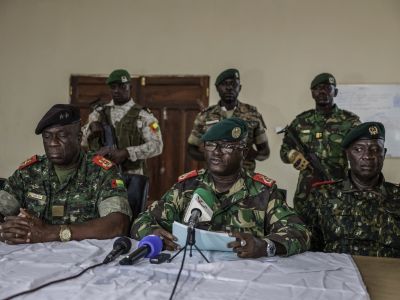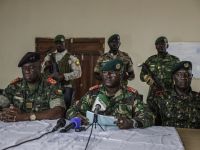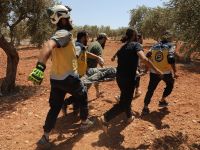As Washington explores its military options for ousting Iraqi leader Saddam Hussein, high-level administration and Pentagon officials say they are examining a new, if risky approach, namely - to take Baghdad and one or two key command centers and weapons depots first. By this, U.S. planners hope to cut off Iraq’s leadership and lead to a quick collapse of the Iraqi government, The New York Times reported Monday.
The report said the "inside-out" approach, as some describe this Baghdad-first option, would benefit from the US military's ability to strike over long distances, maneuvering forces to envelop a large target. Those pushing that plan claim it reflects a strong desire to find a strategy that would not require a full quarter-million American troops, yet hits hard enough to succeed. One significant goal would be to disrupt Iraq’s ability to order the use of weapons of mass destruction.
The advantages and risks of strikes aimed deep inside the country and radiating outward are currently under thorough discussion, according to top administration and Defense Department officials. According to The NY Times, no formal plan has yet been presented to President George W. Bush or the senior members of his national security team, and several officials cautioned that a number of alternatives were still under consideration.
In essence, the inside-out ideas are the reverse of the US strategy in the 1991 Gulf war. The aim, according to the report, would be to kill or isolate Saddam Hussein and to preempt Iraq’s use of weapons of mass destruction, whether against an incoming force, front-line allies or Israel.
Officials say it may be possible to paralyze an Iraqi command-and-control system that is highly centralized and authoritarian. Under such a system, midlevel officers are not taught to improvise, should they be cut off from commanders. It is also possible that those midlevel officers, if they fear that Saddam Hussein has been killed, would not bother to fire weapons of mass destruction.
If that can be accomplished with a smaller invasion force than the 250,000 troops suggested in earlier drafts, the approach could indeed appeal to skittish Gulf allies whose bases would be required for a war. The Defense Department deputy spokesman, Bryan Whitman, said the Pentagon would have no comment on potential military plans for Iraq.
Abdullah, Blair meeting
King Abdullah of Jordan discussed the Middle East and Iraq with British Prime Minister Tony Blair on Monday after warning that no move should be made against Iraq until Israeli-Palestinian peace prospects improve.
Blair's official spokesman said the two leaders covered a wide range of issues but focused mainly on the Middle East and Iraq. He was unwilling to give any detail of the talks but signaled that Blair did not agree in full with King Abdullah's opinion that the U.S. war on terror, including action on Iraq, cannot move forward until firm steps are taken in the Israeli-Palestinian conflict.
Asked whether Blair agreed there was a direct link between the two issues, the British prime minister's spokesman would only say: "He (Blair) acknowledges there is a peace process (in the Middle East) that needs to be energized, and there is an issue of weapons of mass destruction (in Iraq)." (Albawaba.com)
© 2002 Al Bawaba (www.albawaba.com)









